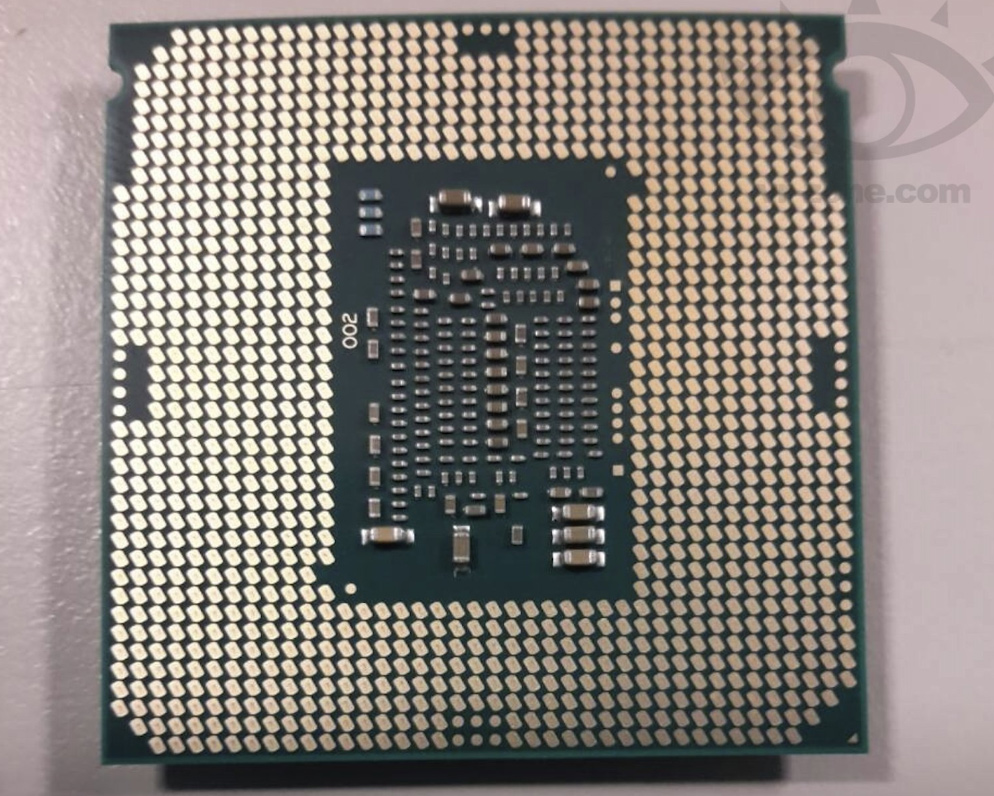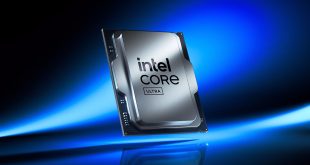Intel Corp. has begun to send samples of its Skylake-S microprocessors to partners. The engineering samples of the next-generation desktop chips feature rather high thermal design power as well as rather low frequencies. Still, a good news is that the new central processing units seem to be on-track for introduction in 2015.
Intel’s Skylake-S ES1 samples feature four x86 cores as well as GT2-class graphics, reports Chinese VR-Zone web-site. One of the Skylake-S models runs at 2.30GHz (2.90GHz TurboBoost) and features 95W TDP, another version runs at 2.20GHz (2.40GHz TurboBoost) and sports 80W TDP. The new microprocessors come in LGA1151 form-factor and require mainboards based on the Intel 100-series chipsets.
The relatively low frequencies of the Skylake-S samples is a disturbing news since in many cases low clock-rate means low performance. It is unclear whether Intel will manage to boost frequencies of the Skylake-S chips by the time they hit the market.
It is interesting to note that the Skylake-S products will support both DDR3 and DDR4 types of memory, which will provide additional flexibility to PC makers, who will be able to choose between low-cost and high-performance memory.
The samples of the Skylake-S microprocessors were manufactured on the 41st week of 2014.
According to unofficial information, the Skylake-S microprocessors will hit the market in the second quarter of 2015.
Intel did not comment on the news-story.
Discuss on our Facebook page, HERE.
KitGuru Says: Perhaps, Intel set low frequencies of the Skylake-S samples to avoid disclosing exact performance of the products ahead of their launch. Still, given low clock-rates and high TDP, the situation does not look too good.
 KitGuru KitGuru.net – Tech News | Hardware News | Hardware Reviews | IOS | Mobile | Gaming | Graphics Cards
KitGuru KitGuru.net – Tech News | Hardware News | Hardware Reviews | IOS | Mobile | Gaming | Graphics Cards




i’m a tad confused…the clock rates above are for the x86 processors right?
if so the x64 processors will be higher surely?
Yes you are a tad confused !
By x86 they’re simply meaning desktop/laptop architecture (Ie not ARM).
typically x86 vs x86_64 is only brought up when talking about instruction sets anymore, not architecture
Well I hope they have something along the lines of a K series cpu on this but by the looks of those clocks I might want to go with a devils canyon or Broadwell cpu bfore the cpu market collapses. LOL
I would be under the impression that since these are “samples” of Skylake architecture, they aren’t rated at high clock speeds, Would this be a usual occurrence? Or are similar sample units sent to partners usually closer to clock speeds at retail? I am in doubt that they would actually ship their next generation with these rates.
Rather high TDP? Only if this is meant to be their budget/mobile line. Just to put things into perspective, a core i5 2500K has 95W TDP.
x86 is the architecture and not 32bit
What happened to releasing Broadwell ???
The – s usually stands for silent: i.e. low power. If they are using the same convention it would make sense for the clocks to be lower.
It could also be that TDP doesn’t mean quite the same thing. For Sandy Bridge and most others, TDP is how much heat it is designed to dissipate. For these engineering samples, though, it probably means “we’re not sure how much heat it has to dissipate so we’re going to make you overengineer your cooling system for this test.”
It’s the ‘S’ marking, which means it runs “silent” or fanless if you have a big enough heat sink. The high TDP is probably just asking partners to overengineer their cooling because they haven’t found out how hot they’ll get in practical applications.
They’re clocked lower because they’re ‘S’ labeled, or silent. The high TDP is probably because they’re not entirely sure how hot they’ll get in customer applications so they’re asking them to overengineer their cooling.
Wow Skylake-S products will support both DDR3 and DDR4 types of memory, I didn’t know that one.
PhoneyVirus
https://twitter.com/PhoneyVirus
https://phoneyvirus.wordpress.com/
95W is not low power. Clocks should be north of 3 GHz if not knocking on 4 GHz at 95W. I think it’s a pretty clear indicator Skylake on 14nm has problems not unlike Broadwell. At this point, I wouldn’t be surprised if it gets delayed.
Engineering samples usually have lower clocks than the final release as well. If what you say ends up being true it wouldn’t surprise me in the least, but it is still too early to tell at this point.
LOL, 95w is fanless?
‘S’ is fanless.
Skylake-S goes to 95w.
http://www.kitguru.net/components/cpu/anton-shilov/intel-to-offer-unlocked-skylake-processors-for-overclockers-in-q3-2015/
Just to let folks know who stumble upon this article, the Skylake 6700K chip has a clock speed of 4GHz with a turbo boost of 4.2GHz. engineering samples are NOT what the finished chips are clocked at.
http://www.kitguru.net/components/cpu/anton-shilov/intel-core-i7-6700k-skylake-s-already-tested-by-intels-partners/